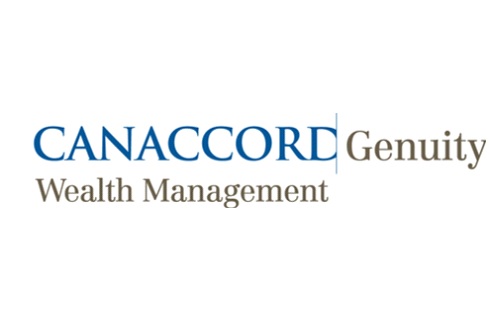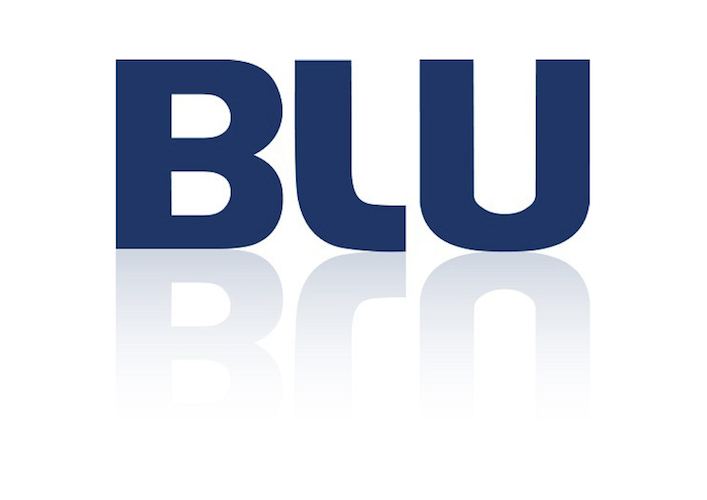This month:
Professional money managers are tweaking asset allocations to take account of equity markets’ prospects versus bonds and others. Some are also spying buying opportunities for long-term investors as 2019 gets underway, with others sounding notes of caution.
Expert investment views:
Recessionary fears played down, but policy moves could provide upsets
Playing “everything from the long side” flagged as a risky position
Investors urged to appreciate supporting factors for stock markets
Staying invested advocated for the year, but selective stock picking will be key
Long-term investors could consider overweighting equities to bonds
US Treasuries tipped as a “double safe haven” for UK investors
Professionals advise pruning vulnerable companies from portfolios now
A proactive, rather than reactive strategy set to become vital
1. A look back at 2018 and a glimpse into 2019
Insights from:

In 2018, Trump showed his true colours. The markets applauded his arrival in 2016, with his tax cutting and regulation slashing. But last year, Trump’s posturing on trade wars and the stall in business spending unnerved markets. Interest rates were also a concern. Despite being resilient for most of the year, US markets finally succumbed and delivered the worst Q4 return since the 2008 global financial crisis.
So, what now for markets in 2019?
It’s true that US economic growth is due to moderate, but the slowdown is likely to be mild – perhaps to the low-to-mid 2s. US corporate earnings may have a high hurdle to beat, given the tax cut impact on 2018 income, but estimated profit growth is still positive. The trade war issue continues but ultimately, we don’t think the US is willing to scupper its own economy to bring China down; at some point “realpolitik” must kick in. Until things are decided though, the markets will stick to their disbelief.
The trade war issue continues but ultimately, we don’t think the US is willing to scupper its own economy to bring China down; at some point “realpolitik” must kick in
Elsewhere, we believe those regions like Europe, China and Japan may recover somewhat as their policy makers provide fiscal and monetary stimulus.
Inflation is also unlikely to be a significant problem. The markets are more worried about it than economists.
How should investors navigate the markets?
We prefer equities to bonds and cash. And we prefer the US, Japan and emerging markets over Europe and the UK. We think 2019 may see less buoyancy for the dollar and the pound might be the coin to watch. Active stock selection will be key. But we think our crystal ball will remain cloudy until some of these policy moves get ironed out. A degree of patience will be needed this year.

Michael Perera
Chief Investment Officer at Canaccord Genuity Wealth Management
2. Surveying the state of the markets
Insights from:

With an action-packed year behind us and an uncertain outlook for 2019, let us explore where the markets currently are in the grand scheme of things.
Clearly, equities are in trouble. The S&P 500 has broken through every imaginable support along the strong trend that had emerged since the great crisis and whose strength now seems all but a distant memory. The emerging markets had of course been a forbearer of bad news for quite some time and performance in country indices from Asia, South America and Africa are down as much as 50% from the highs. The VIX Index (CBOE Volatility Index) is up more than 100% during this sell-off and is signalling no respite ahead.
Risk has certainly increased and if you are still playing everything from the long side, you may be very disappointed as the chickens come home to roost
The commodity markets as ever have followed the equity markets down and oil, for example, has got slaughtered along the way. Bonds are painting a pretty mixed picture and are still mired in uncertainty with the direction of interest rates post the quantitative easing experiment. Currencies have been all about the US dollar, but there are cracks appearing in this trend. The fact that the dollar is not going up anymore during sell-offs, as people seek safe havens, tells you all you need to know about the state of affairs in Trump-land and its current economics.
Where do we go from here? No one knows, but risk has certainly increased and if you are still playing everything from the long side, you may be very disappointed as the chickens come home to roost.

Christian Armbruester
Chief Investment Officer at Blu Family Office
3. Are markets ahead of themselves?
Insights from:

Historically, equity markets have started to discount recession in advance of it happening, but at the start of 2019, it does feel as though the market appears to be somewhat ahead of itself. Two widely followed barometers of sentiment currently reflect this: the Credit Suisse Global Risk Appetite Index, which trades between “euphoria” and “panic”, is currently in panic territory, while the spread between bulls and bears in the survey from the American Association of Individual Investors points to the same conclusion. When this occurs, typically markets recover.
Investors will continue to be concerned about the risk of recession in major economies and increased market volatility is likely. Against this more uncertain backdrop, we expect 2019 to be a year of relatively low, albeit still positive equity market returns.
It is unlikely that corporate profits will fall without a recession and whilst there is the risk of a faster decline in economic activity than expected, we see healthy household balance sheets, a relatively high personal saving rate, strong labour market momentum and high business confidence
Earnings growth forecasts remain susceptible to downgrades. In the US, 2018 growth was boosted by changes to tax policy. Trade tensions have the potential to be a headwind everywhere but especially for Asia and emerging markets, whilst Brexit uncertainty will continue to weigh on domestically focused UK companies. It is unlikely that corporate profits will fall without a recession and whilst there is the risk of a faster decline in economic activity than expected, we see healthy household balance sheets, a relatively high personal saving rate, strong labour market momentum and high business confidence. We do not expect a global recession in 2019 and retain our neutral equity allocation.

Caspar Rock
Chief Investment Officer at Cazenove Capital
4. Navigating the new year
Insights from:

As we enter a new year and take stock of the investment landscape, conditions undoubtedly point to a more challenging road ahead. Whether it be tightening monetary policy, the maturing cycle, or geopolitical tensions across the globe, several factors are at turning points and will continue to contribute to more volatile markets.
That said, we don’t yet see the conditions commonly associated with an impending recession, most political risks will likely prove idiosyncratic, and we do see growth opportunities and pockets of value. To adapt to this uncertainty, we identify five key strategies and ideas to follow to prepare portfolios for volatility. We believe that staying invested but being selective, diversified, investing sustainably and building a clear financial plan will be key to navigating the challenges of 2019.
Specifically, we think that staying invested will pay off this year. By being selective, investors should focus on those companies which are exposed to secular growth, high-quality earnings, or those pricing in adverse scenarios.
We believe that staying invested but being selective, diversified, investing sustainably and building a clear financial plan will be key to navigating the challenges of 2019
As political and individual corporate risks inevitably come to the fore this year, these risks can be navigated by diversification across countries, sectors, and market drivers.
Next, investors can play a significant role in helping to address society’s biggest challenges by deploying capital in a responsible and sustainable way, while also delivering comparable financial returns to traditional strategies.
Finally, we have developed a Liquidity, Longevity, and Legacy (3L) approach. This will allow investors to maintain a liquidity buffer to protect spending, while ensuring portfolios remain on track to achieve longer-term goals.
So, as we enter what we can expect to be a turbulent year for markets, we maintain the view that staying invested but taking the appropriate measures will position investments to prosper in 2019.

Caroline Simmons
Deputy Head of the UK Investment Office at UBS Wealth

Top Tip
You may be a “long-term investor”, but discussing all your investment time-horizons with a professional may reveal serious incongruities in your portfolio’s asset allocation and risk exposures. A sound investment plan encompassing your goals, risk-profile and life stage is key.

Lee Goggin
Co-Founder
5. Time to overweight equities to bonds?
Insights from:

Unless the domestic US and global economic outlooks brighten markedly, we believe the scope for further US rate rises looks limited. If we are correct in our view that the Fed ultimately does the right thing by pulling its punches, then markets are in all likelihood overplaying the bear case for equities and that we are likely to see reasonable stock market performance during 2019. If, however, we are wrong and the Fed continues to tighten as the economy slows then further US-driven stock market losses are likely in the months ahead.
For those investors who have a truly long-term time horizon, now is a good time to consider overweighting equities to bonds
As we head into the first quarter, the focus will turn to the US corporate earnings reporting season. Last year is likely to see full-year earnings growth in excess of 20% (significantly boosted by tax cuts and share buybacks), and whilst 2019 growth is likely to be somewhat lower (more in line with the long run average of 7%), given the market’s current pessimism there is a reasonable amount of scope for some positive surprise.
The recent selloff in equities and decline in bond yields has pushed global equities to their cheapest level relative to investment grade bonds for many years. If we turn our attention to the UK for a moment, the comparison is even starker – the FTSE100 now yields 4.9%, which is a record premium to the ten-year gilt yield of 1.2%. For those investors who have a truly long-term time horizon, now is a good time to consider overweighting equities to bonds.

Jon Cunliffe
Chief Investment Officer at Charles Stanley
6. An attractive entry point for long-term investors?
Insights from:

This has been another poor month for investors, with US equities – the S&P 500 – at one point on track for one of their worst months in the index’s history. Concerns over global growth, higher interest rates, and political uncertainty all played a role in the sell-off, but while there are short-term headwinds to performance, we continue to believe that today represents an attractive entry-point for long-term investors.
Given recent moves, people will be understandably nervous, perhaps especially in the UK where attention is turning once more to Brexit. From an investment standpoint, however, Brexit is a very minor reason why markets are selling off. The uncertainty is undoubtedly an incremental drag on UK growth, but many companies in the FTSE 100 are not particularly exposed to the UK economy, with 75% of the index’s earnings coming from overseas. Internationally diversified portfolios may actually benefit from Brexit, as the falling value of the pound pushes up the value of assets held in overseas currencies.
Concerns over global growth, higher interest rates, and political uncertainty all played a role in the sell-off, but while there are short-term headwinds to performance, we continue to believe that today represents an attractive entry-point for long-term investors
The FTSE 100 has not been helped by the recent fall in oil prices. Both BP and Shell were in the bottom ten contributors to the UK market over December, and have been over the past six months too. Oil prices have been hit by concerns over excess production, with the US now producing a third more oil than just two years ago. Unless oil companies start investing more outside of the US, however, the outlook for oil remains attractive.
While there are concerns over global growth, we believe valuations are looking attractive at the moment, particularly in areas like Europe and emerging Asia. The economic backdrop is unlikely to be as good in 2019 as it was in 2018. But expectations are much lower, and investor optimism is often inversely correlated to how well markets perform.
If you are nervous about investing in the short term, there are a range of asset classes you can use to diversify your risk. US government bonds, or Treasuries, returned 2.2% in December. Treasuries offer a double safe haven for UK investors, due to their natural defensiveness and the fact that the US dollar is likely to do well in the event of a hard Brexit. They currently offer a yield of around 2.75%, allowing you to get paid to wait out the volatility in markets. Our investment team also has a small position in gold, which was up by approximately 3% over December.

Chris Taggart
Investment manager at Quilter Cheviot
7. Not tempted by equity sale prices
Insights from:

Last year, equity markets caught the winter sales mood that is hurting retailers. Global equities suffered one of the worst quarterly declines since the Great Depression, with a fall of 7.8% in December alone.
Yet we are still sitting on high levels of cash rather than using the market weakness to buy quality company shares more cheaply. Why?
A year ago, the economic backdrop appeared overwhelmingly positive – economies across the globe were expanding and President Trump’s cut to corporation tax had delivered a significant stimulus to the US, where unemployment was approaching record lows.
We have no exposure at all to corporate debt and have been looking to weed out from portfolios any companies we believe carry higher risk at this point in the cycle – especially those that have used debt and acquisitions to grow
Even then we were cautious – concerned about issues like high bond and equity valuations, rising interest rates and the imminent reversal of the 10-year experiment in quantitative easing.
Twelve months on there is even more to be concerned about. A decade of central bank stimulus and extremely low interest rates have created areas of excess. Corporations have taken debt to levels not seen since 2007. And then there are Trump’s trade wars, slowing economic growth, the continued rise of populism in Europe and Brexit.
We continue to view the global economy as precariously balanced. We have no exposure at all to corporate debt and have been looking to weed out from portfolios any companies we believe carry higher risk at this point in the cycle – especially those that have used debt and acquisitions to grow.
Equities remain our favoured long-term asset class, but sale prices will have to become more attractive still to tempt us to buy.

Mark Leach
Portfolio manager at James Hambro & Partners
8. Out with the “old” and in with the “new”
Insights from:

We left 2018 with markets performing very poorly, volatility picking up and some extremely strange daily movements across global indices. The sorts of falls and reversals that we experienced were typical of a bear market in equities and are indicative of an extremely challenging and “confusing” investment environment ahead.
However, whilst most commentators are obsessing about the negatives, we also need to consider what the positive factors are that could lead to a change in market behaviour and investor sentiment. As we have always said, being reactive is pointless; proactive investment is vital. In this regard investors should recognise that the time to become cautious about the market outlook was a year ago when optimism abounded and investors were falling over themselves to chase risky assets to higher valuations. So now the main questions we are asking ourselves are over what stage we should start to become more constructive on valuations and the medium term outlook for selective investments.
As we have always said, being reactive is pointless; proactive investment is vital
Whilst one can take comfort from the increasing panic in markets and the reduced expectations for the year ahead, it is too early to sound the “all clear” and increase risk. As we have seen in the first few trading sessions of 2019, markets are not behaving in a predictable manner and radically shifting asset allocations would be based upon guesswork. However, we will keep open-minded and what we are evaluating now is whether we should increase risk as we progress through the early months of 2019 and enhance our focus on attractive long-term valuation opportunities. It is entirely possible that we will, but for now we are comfortable with our overall positioning and excited by the medium-term potential of our favoured investments.

Thomas Becket
Chief Investment Officer at Psigma Investment Management
Important information
The investment strategy explanations contained in this piece are for informational purposes only, represent the views of individual institutions, and are not intended in any way as financial or investment advice. Any comment on specific securities should not be interpreted as investment research or advice, solicitation or recommendations to buy or sell a particular security.
We always advise consultation with a professional before making any investment decisions.
Always remember that investing involves risk and the value of investments may fall as well as rise. Past performance should not be seen as a guarantee of future returns.








